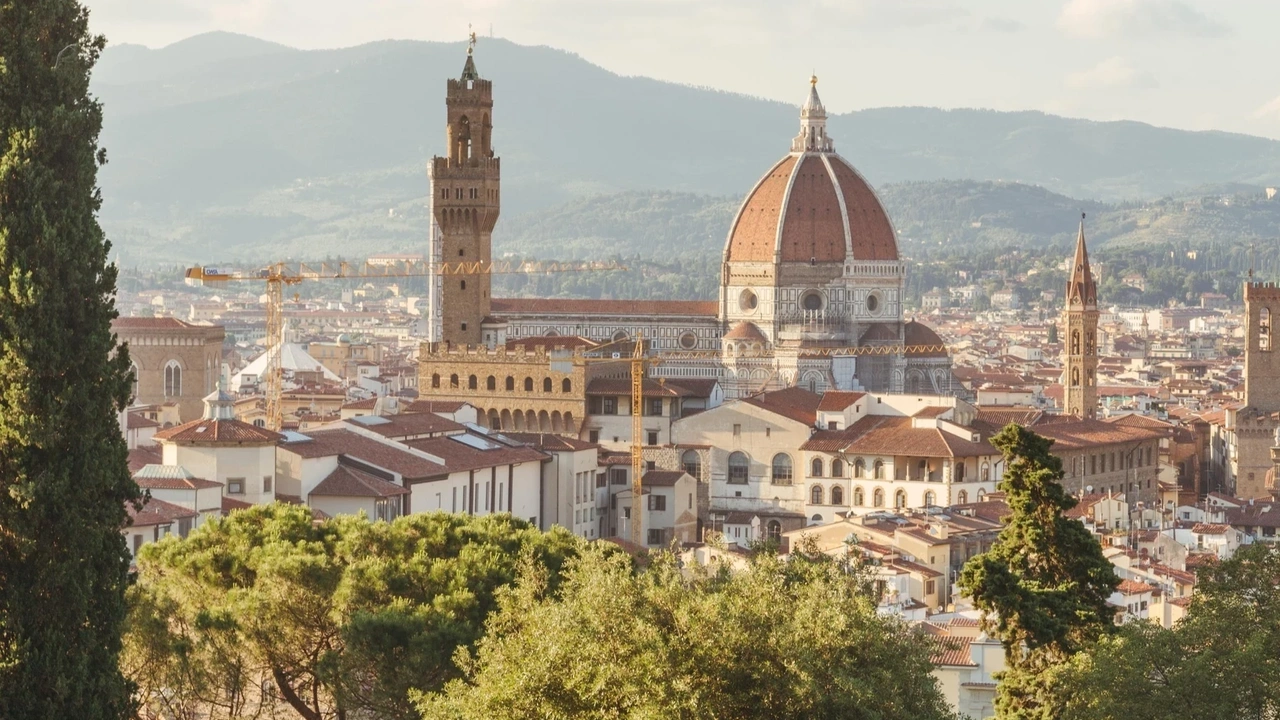
Photo by Giuseppe Mondì (@masinutoscana)
Famous French writer Stendhal once described one of the most profound emotions he had ever experienced. During a visit to Florence, the sheer beauty of architecture and art in the city provoked “palpitations in his heart” and he felt that “life was drained” from him. The intensity of the experience was such that Stendhal says he reached “celestial sensations”. The beauty of it all was almost too much for him.
Photo by Giuseppe Mondì (@masinutoscana)
To some degree, we all have at some point in our lives felt the sublime emotion of wonder, when beauty enters through the senses and invades body and mind. Wonder is the tears that come to your eyes when hearing your favorite song, the rush of blood that accelerates your heart rate when you see a beautiful painting, or the feeling of awe before the marvels of nature. When it reaches its most intense peak, this experience receives a name: the Stendhal syndrome.
None of this would be possible without the capacity to feel awe. Maybe this is what makes us human: being able to wonder. Aristotle and Plato, two of the greatest Greek thinkers who ever lived, were onto this when they said that philosophy starts with wonder. When we feel wonder, we embark on a journey that can enrich every aspect of life. Wonder can start with something small, like the simplicity of a flower, or with the most vexing puzzles, like the immensity of the universe. Wonder removes us from the superficiality of mechanical life and elevates us towards reflection and action.
But to be able to wonder we need to pay attention. When living too quickly, we lose the capacity to grasp details. And we lose the capacity to see beauty. Stress and anxiety make us less able to appreciate that which leads us to feel awe. Surrounded by noise and overexposed to intense colors and bright images every day, our ears and eyes end up exhausted and powerless to experience wonder. In a way, living a stressful life makes us less human.
How can we learn (or relearn) the capacity to wonder? Children are a good example: they are curious by nature and examine things with thorough attention, and they ask questions without end: why is the sky blue? Why is granny so wrinkly? Why is the sun so bright? Like them, we can strive to be more curious and inquisitive.
Being awake and attentive is a condition of wonder, and to be awake and attentive we need to change our rhythm. The world constantly tells us that spending time for ourselves is mediocre, as if we only lived to work. And we know that isn’t the case. If you want to change this, aiming for a slower, calmer life is a great way to start. Something as easy as taking 10 minutes every day to meditate or, simply, to breathe. Mindfulness, meditation, slow living, are all helpful tools that can change the way we perceive the world around us. Try this: sit somewhere quiet and close your eyes. Breath deeply and slowly. Become conscious of the rhythm of your breath. Hear the sounds around you: are there birds singing? people talking? cars passing through? Try to stay in this position for some minutes, and then write down how you felt in this practice.
We at LUAN want you to invite wonder into your life. Don’t worry, we’ve got you covered: our Wonder & Wander Toolkit will provide the basics for you to start wondering: ideas, exercises and poems are only some of the tips you will find to inspire wonder.
One doesn’t need to be in Florence to wonder at sheer beauty. We only need to know how to find it in everyday life. In his poem The Naive, Jorge Luis Borges claims that “every dawn (it's been spoken) incites wonders / able to turn the most tedious fortune”. At the end of the poem, he shows us some of the ways to wonder at simple things : “I wonder if a key opens a door / I wonder that my hand can be clear and distinct [...] and that the rose smells like the rose”. When we can wonder at our own hands, that’s when we are paying attention.

Photo by Adam Thomas (@adamsthomas48) | Photo by Jakob Owens (@JakobOwens)
The Naive
Jorge Luis Borges
every dawn (it's been spoken) incites wonders
able to turn the most tedious fortune
there are human footsteps that have walked the moon
and insomnia to drain years and miles.
out in the blue common nightmares haunt
and darken the day. Nothing on Earth
cannot be other, or contrary, or none.
Only pure surprises are to me uncanny.
I wonder that a key opens a door
I wonder that my hand can be concrete,
I wonder at the Greek Eleatic arrow
not instantly reaching the unreachable goal
I wonder that the cruel sword is beautiful,
and that the rose smells like the rose.

